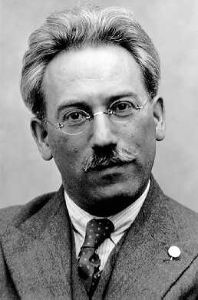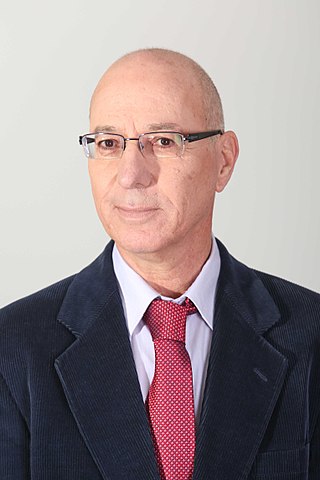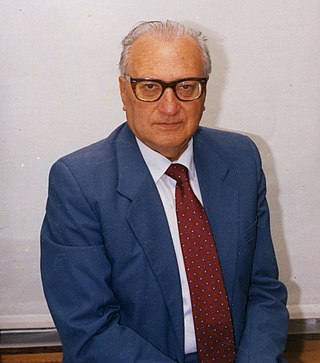Related Research Articles

Jerusalem is a city in the Southern Levant, on a plateau in the Judaean Mountains between the Mediterranean and the Dead Sea. It is one of the oldest cities in the world, and is considered holy to the three major Abrahamic religions—Judaism, Christianity, and Islam. Both the State of Israel and the State of Palestine claim Jerusalem as their capital city. Israel maintains its primary governmental institutions there, and the State of Palestine ultimately foresees it as its seat of power. Neither claim is widely recognized internationally.

The Arab citizens of Israel form the country's largest ethnic minority. Their community mainly consists of former Mandatory Palestine citizens who continued to inhabit the territory that was acknowledged as Israeli by the 1949 Armistice Agreements. Notions of identity among Israel's Arab citizens are complex, encompassing civic, religious, and ethnic components. Some sources report that the majority of Arabs in Israel prefer to be identified as Palestinian citizens of Israel, while recent surveys indicate that most name "Israeli", "Israeli-Arab", or "Arab" as the most important components of their identity, reflecting a shift of "Israelization" among the community.

Efraim Karsh is an Israeli and British historian who is the founding director and emeritus professor of Middle East and Mediterranean Studies at King's College London. Since 2013, he has served as professor of political studies at Bar-Ilan University. He is also a principal research fellow and former director of the Middle East Forum, a Philadelphia-based think tank. He is a vocal critic of the New Historians, a group of Israeli scholars who have questioned the traditional Israeli narrative of the Arab–Israeli conflict.
David Bukay is a Professor of Middle East Studies at the University of Haifa. He is the author of Islamic Fundamentalism and the Arab Political Culture. He specializes in the Arab–Israeli conflict; inter-Arab relations and the Palestinian question; international terrorism and fundamental Islam; theoretical issues and political applications in the Middle East; Asad's foreign policy towards Israel and Lebanon; the culture approach to understanding the Middle-East.

Yehoshafat Harkabi was chief of Israeli military intelligence from 1955 until 1959 and afterwards a professor of International Relations and Middle East Studies at the Hebrew University of Jerusalem.

Palestinian Jews or Jewish Palestinians were the Jews who inhabited Palestine prior to the Declaration of the Establishment of the State of Israel on 14 May 1948.
Raphael Patai, born Ervin György Patai, was a Hungarian-Jewish ethnographer, historian, Orientalist and anthropologist.
Dan Schueftan is an Israeli academic and chairman of the National Security Studies Center at the University of Haifa. He also serves as a senior lecturer at Haifa University's School of Political Sciences. He has taught at the Israel Defense Force's National Security College and the IDF's Command and Staff College.

Yoav Gelber is a professor of history at the University of Haifa, and was formerly a visiting professor at the University of Texas at Austin.

Tarek Heggy is an Egyptian liberal author, political thinker and international petroleum strategist. Heggy is one of Egypt’s more prominent authors on the subject of Egypt’s need for political reform. His extensive writings advocate the values of modernity, democracy, tolerance, and women's rights in the Middle East – advancing them as universal values essential to the region's progress. He has lectured at universities throughout the world and various international institutions and think tanks, including The Heritage Foundation, the Carnegie Endowment for International Peace, and the Council on Foreign Relations.
Muslim supporters of Israel refers to both Muslims and cultural Muslims who support the right to self-determination of the Jewish people and the likewise existence of a Jewish homeland in the Southern Levant, traditionally known as the Land of Israel and corresponding to the modern polity known as the State of Israel. Muslim supporters of the Israeli state are widely considered to be a rare phenomenon in light of the ongoing Israeli–Palestinian conflict and the larger Arab–Israeli conflict. Within the Muslim world, the legitimacy of the State of Israel has been challenged since its inception, and support for Israel's right to exist is a minority orientation. Pro-Israel Muslims have faced opposition from both moderate Muslims and Islamists.

The Islamic Movement in Israel also known as the Islamic Movement in '48 Palestine is an Islamist movement that advocates for Islam in Israel, particularly among Arabs and Circassians.

Shlomo Kaplansky was a Labour Zionist politician, who served as the secretary of the World Union of Poalei Zion. During the 1920s he was a leading advocate of a bi-national state in Palestine. Kaplansky was the President of the Technion – Israel Institute of Technology.

Yitzhak Reiter is an Israeli political scientist. He is a professor specializing in Israel studies and Islamic and Middle East history and politics, teaching at Reichman University and Al-Qasemi College. A senior researcher at the Jerusalem Institute for Policy Research, he formerly chaired the Department of Israel Studies at Ashkelon Academic College.

Dan Caspi was a lecturer at the Communication Studies Department of Ben-Gurion University of the Negev, Beersheba, Israel.

Mandatory Palestine was a geopolitical entity that existed between 1920 and 1948 in the region of Palestine under the terms of the League of Nations Mandate for Palestine.

Palestinian nationalism is the national movement of the Palestinian people that espouses self-determination and sovereignty over the region of Palestine. Originally formed in the early 20th century in opposition to Zionism, Palestinian nationalism later internationalized and attached itself to other ideologies; it has thus rejected the occupation of the Palestinian territories by the government of Israel since the 1967 Six-Day War. Palestinian nationalists often draw upon broader political traditions in their ideology, such as Arab socialism and ethnic nationalism in the context of Muslim religious nationalism. Related beliefs have shaped the government of Palestine and continue to do so.

Hillel Frisch is an Israeli political scientist and professor of Political Science and Middle Eastern History at Bar Ilan University. His work focuses on Israeli-Palestinian interactions and military strategies, the political impact of Islam, institutions and the military, the political dynamics of the Israeli Arab community, the Muslim Brotherhood in Jordan, the Palestinian territories, Egypt, the Jordanian-Palestinian relationship, and Islamism.

Jacob M. Landau was Professor Emeritus in the Department of Political Science at the Hebrew University of Jerusalem.

Yosef Govrin was an Israeli diplomat who served in Israel's Foreign Service between 1953 and 1995.
References
- ↑ International Who's Who in Asian Studies (Asian Research Service, 1975), p. 110.
- 1 2 3 4 "Prof. Raphael Israeli". Hebrew University of Jerusalem. Retrieved August 24, 2023.
- ↑ "The Harry S. Truman Research Institute". truman.huji.ac.il. Retrieved 2017-11-30.
- ↑ "Key People". Jerusalem Center for Public Affairs. Retrieved July 15, 2015.
- ↑ McGahern, Una (2012). Palestinian Christians in Israel: State Attitudes towards Non-Muslims in a Jewish State. Routledge. ISBN 9781136656804.
- ↑ Chaim Levinson (June 9, 2017). "Senior Israeli politicians celebrate book that says Arabs should be incarcerated in camps". Haaretz.
- ↑ "ADL blasts Likud MKs for attending launch of anti-Arab book". The Times of Israel.
- ↑ "Face of Europe changing as many French, British convert to Islam". The Jerusalem Post. January 23, 2007.
- ↑ "HU prof. says he was 'abandoned' after criticizing Muslims". The Jerusalem Post. February 19, 2007.
- ↑ "Dhimmitude Unveiled". New English Review. August 2013.
- ↑ "Beskriver muslimer som hot - föreläser för svensk tankesmedja". Expo (in Swedish). May 7, 2015.
- ↑ Gordon, Jerry, "Will the Islamic State be Destroyed or Self-Destruct?" (review and interview) Archived 2017-02-02 at the Wayback Machine , newenglishreview.org, November, 2016. Retrieved 2017-01-27.